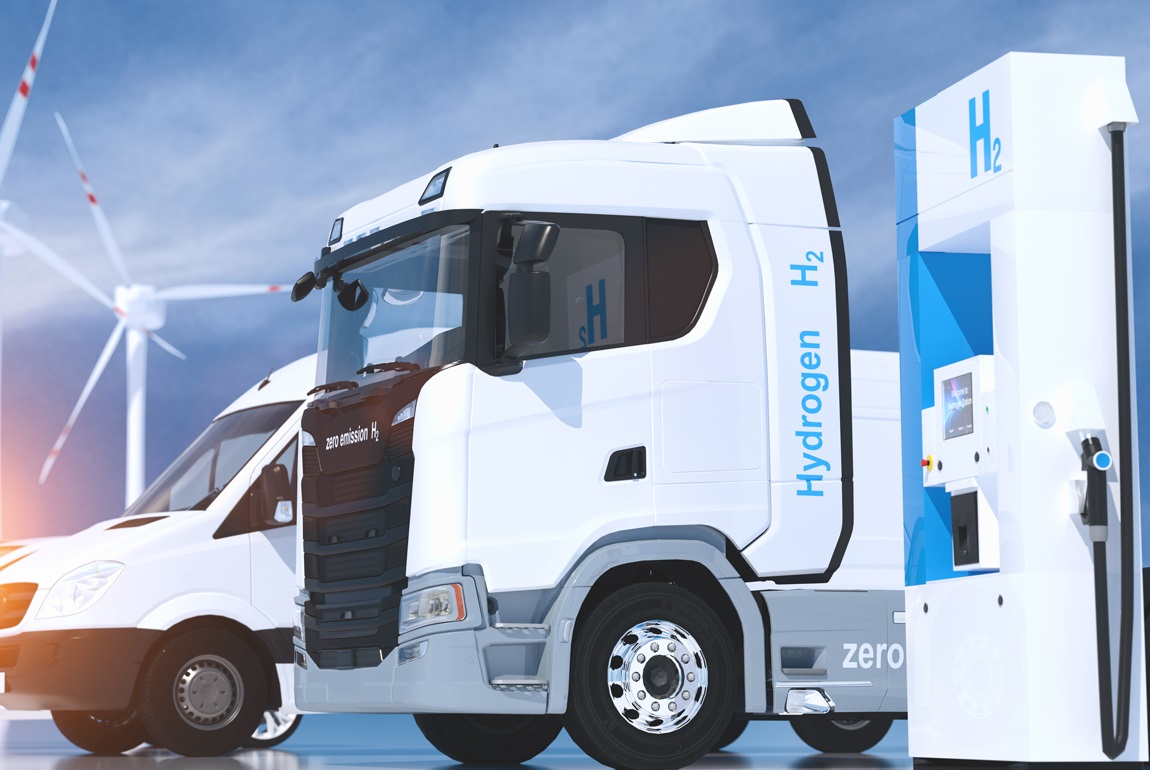11 Dec 2024

Tired Earth
By The Editorial Board

The French government is preparing to update its national hydrogen strategy, initially launched in 2020, and many in the industry fear the road transport sector will no longer be a priority.
Hydrogen’s high production and operating costs limit its potential in the mobility sector, where it faces tough competition from electric vehicles.
However, according to Philippe Boucly, president of the French hydrogen industry association France Hydrogène, “there is no reason to worry” about declining interest in hydrogen in road transport.
Instead, “more time needs to be spent to go deeper into the topic,” he told Euractiv at the Hydrogen Business for Climate Forum held in Belfort earlier this month.
While hydrogen mobility stakeholders eagerly await the government’s updated roadmap, many fear the focus risks shifting from the mobility sector to industry – a concern expressed by France Hydrogène in a manifesto published in July.
In Belfort, they hammered the point home, focusing on one sector in particular: light commercial vehicles (LCVs).
150,000 vehicles
LCVs are vehicles weighing up to 3.5 tonnes, such as vans or small delivery trucks, designed to carry goods.
According to France Hydrogène, 150,000 of France’s six million LCVs could be hydrogen-powered by 2030.
Therefore, the electrification of vehicles will be the primary means of decarbonising the sector, but “the logic of one-size-fits-all solutions is always rather dangerous,” Marc Mortureux of the PFA Group argued at the Belfort event.
One of the key arguments for hydrogen-powered LCVs compared to electric vehicles is that they take some load off the electricity grid. But The sector has other arguments, notably the speed with which conventional internal combustion engines can be converted to hydrogen.
The hydrogen engine “uses the same mechanical technologies as the internal combustion engine,” explains Bertrand Savatier, communications manager for manufacturer EHM, which specialises in hydrogen engines for heavy-duty vehicles (HDVs). In France, the hydrogen market for HDVs represents around 12,000 vehicles, he said in the Belfort local newspaper Le Trois.
This solution “can be brought to market very quickly”, Vincent Heurtier, head of testing at French mechanical transmission specialist Danielson Engineering, told the same newspaper.
Meanwhile, orders are already pouring in. French hydrogen tank manufacturer Forvia is already supplying hydrogen-powered commercial vehicles to Peugeot and Citroën in France and Germany, with Renault to follow soon, according to Le Trois.
Still too expensive
Yet, these vehicles are still too expensive for companies to buy.
A hydrogen-powered LCV would cost around €100,000 to €110,000 in France, compared with €35,000 to €40,000 for a diesel-powered LCV.
The industry is asking the government for support for such price differences. At the very least, it wants existing subsidies to be maintained, such as the conversion and purchase grants that will disappear at the end of 2022. These accounted for up to 40% of the difference between a diesel and a hydrogen vehicle.
In Germany, for example, the government subsidises 80% of the difference between diesel and hydrogen LCVs.
“Similar support is also being provided in the Netherlands,” explained Julien Etienne, sales and marketing director of Hyvia, a developer of hydrogen solutions, who was present at the Belfort event.
Without access to the same level of support, Boucly estimates that a total of €600-€700 million is needed to “unlock the market” for LCVs and hydrogen refuelling stations.
Given the difference in cost between a diesel and a hydrogen vehicle, this does not seem like much. Besides, as Hechem Nadjar, founder of French station builder EnHywhere, told the Hydrogen Forum, a station suitable for trucks and LCVs delivering 400 kg per day currently costs more than €1 million.
In addition, Boucly says the “incentive tax on the use of renewable energies in transport”, which obliges fuel distributors to offer a share of alternative fuels, including hydrogen, or risk financial penalties, could be a “game changer if it is spread over several years”.
In short, Boucly hopes that fuel producers and distributors can take a step towards hydrogen mobility players and get the ball rolling with such measures in place. Otherwise, there is a risk of “producing green hydrogen in France for Chinese vehicles”, according to Etienne, whose words were echoed by Boucly.
Worse still, there could be a return to diesel for heavy-duty vehicles fuelled by biogas, whose prices are linked to those of fossil gas, which have risen sharply as a result of Russia’s war in Ukraine, according to Bertrand Leroy, director of the gas segment at TSG Group, a European developer of sustainable mobility solutions.
A shift to biogas (bioNGV) is “one of the scenarios that could happen”, said Aurelien Berthelet, managing director of Cars Berthelet, at an event in early September 2022. At the time, growth curves for bioNGV consumption were still on a steep rise.
Source : euractiv.com
Comment